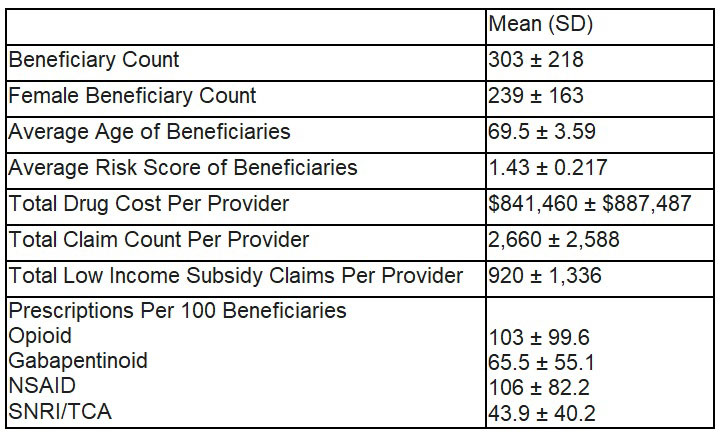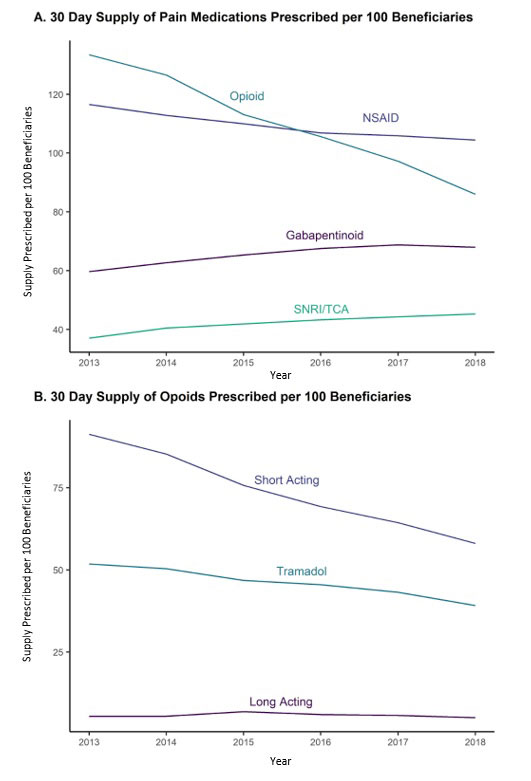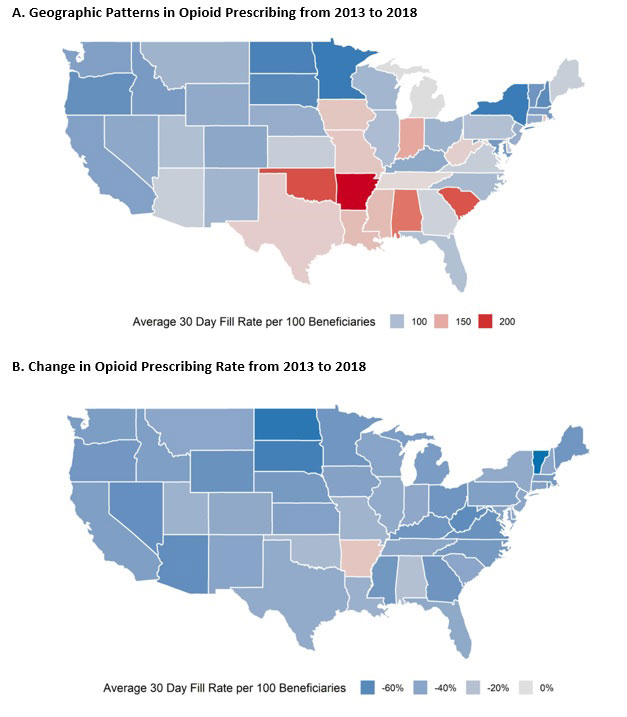Session Information
Date: Saturday, November 12, 2022
Title: Health Services Research Poster I: Lupus, RA, Spondyloarthritis and More
Session Type: Poster Session A
Session Time: 1:00PM-3:00PM
Background/Purpose: Prescription opioid medications are highly effective in managing acute pain, but their use for chronic pain remains controversial. The objective of this study is to describe trends in pain medication prescribing among US rheumatologists.
Methods: This repeated cross-sectional study identified US rheumatologists who prescribed in Medicare Part D from 2013-2018. Opioids, NSAIDs, gabapentinoids, and SNRI/TCAs were identified. Total and yearly prescribing by medication type was analyzed using descriptive statistics and compared using one-way ANOVA testing.
Results: We identified 5,642 rheumatologists. The prescribing rate per 100 beneficiaries increased for gabapentinoids from 59.7 to 67.9 (p< 0.001) and for SNRI/TCAs from 37.0 to 45.3 (p< 0.001). It decreased for NSAIDs from 117 to 104 (p< 0.001) and for opioids from 133 to 86.0 (p< 0.001). The prescribing rate per 100 beneficiaries decreased for short-acting opioids from 91.3 to 58.1 (p< 0.001) and for tramadol from 51.8 to 39.1 (p< 0.001). The prescribing rate for long-acting opioids was not significantly associated with year. The total cost of prescriptions decreased for opioids, NSAIDs, and SNRI/TCAs but increased for gabapentinoids. Geographic differences in the prescribing rate and geographical changes over time were observed.
Conclusion: US rheumatologists have been prescribing short-acting opioids and tramadol at lower rates over time, which corresponded with an increased prescribing rate of gabapentinoids and SNRI/TCAs. Future studies should assess whether patients with rheumatic diseases report adequate control of chronic pain.
To cite this abstract in AMA style:
Valley E, Pedersen C, Henry K, Duarte-Garcia A, Sabchyshyn V, Putman M. Opioid and Pain Medication Prescribing by Rheumatologists for Medicare Part D Beneficiaries from 2013 to 2019 [abstract]. Arthritis Rheumatol. 2022; 74 (suppl 9). https://acrabstracts.org/abstract/opioid-and-pain-medication-prescribing-by-rheumatologists-for-medicare-part-d-beneficiaries-from-2013-to-2019/. Accessed .« Back to ACR Convergence 2022
ACR Meeting Abstracts - https://acrabstracts.org/abstract/opioid-and-pain-medication-prescribing-by-rheumatologists-for-medicare-part-d-beneficiaries-from-2013-to-2019/



